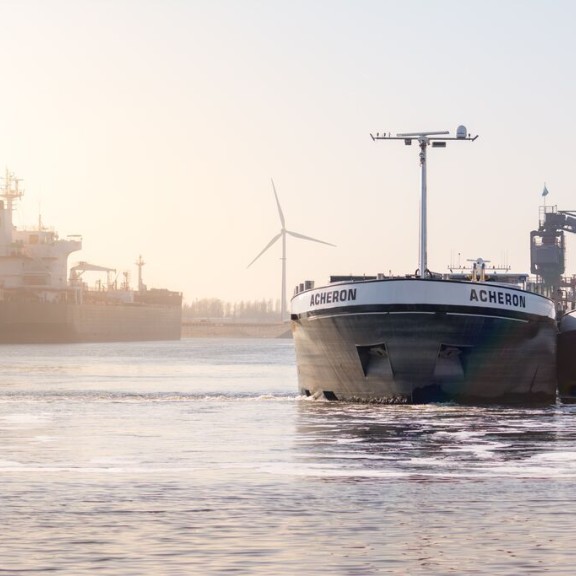
Facilities
Are you visiting the port of Amsterdam by barge? Find all the available facilities on this page.
Facilities for cars
Car transfer points
There are 7 public moorings where you can embark or disembark your car. Of the 7 sites, 4 have waste containers and 2 have a drinking water supply.
- A car transfer point can be used free of charge.
- You can be moored for 30 minutes.
- You do not have to book in advance.
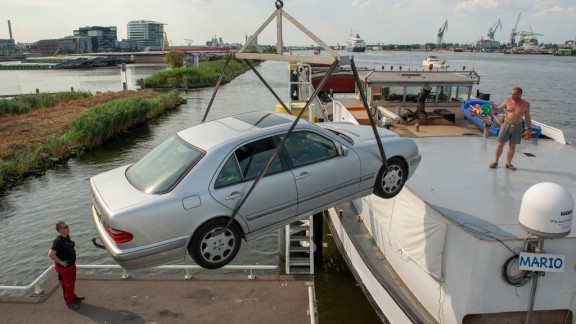
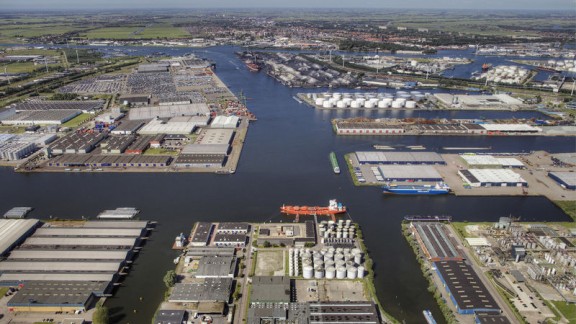
Parking your car
Free
There are no fewer than 17 free car parks with one or more parking spaces in the Westelijk Havengebied.
Paid
Other places in Amsterdam are subject to the ‘paid parking’ policy of the City of Amsterdam. View paid parking zones.
Bunkering facilities
Fuel and engine oil
There are 4 bunker stations for fuel and engine oil:
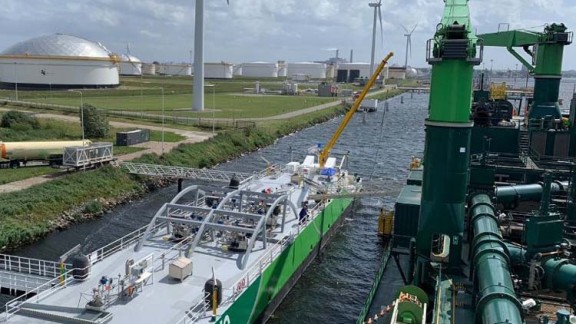
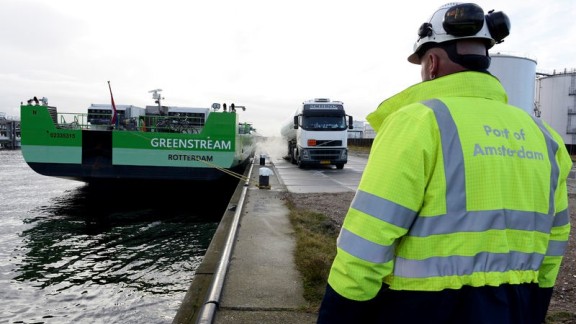
Sustainable fuel
To encourage the use of sustainable fuel, Port of Amsterdam has amended the Port Bye-laws to facilitate ship-to-ship bunkering for vessels. A LNG bunker station for inland shipping has also been set up in Amerikahaven.
Domestic and cargo waste
Domestic waste
There are collection points for paper, glass and domestic waste at the vehicle transfer points at Haparandadam, in the Houthavens and Afrikahaven, on the Stromboliweg and the Jan Riebeeckhaven.
The glass and paper containers are open to all. The waste container is operated with the free eco card.
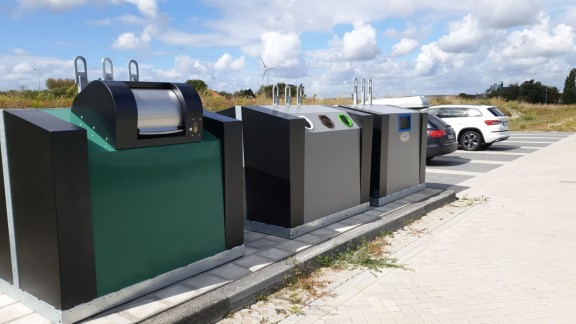
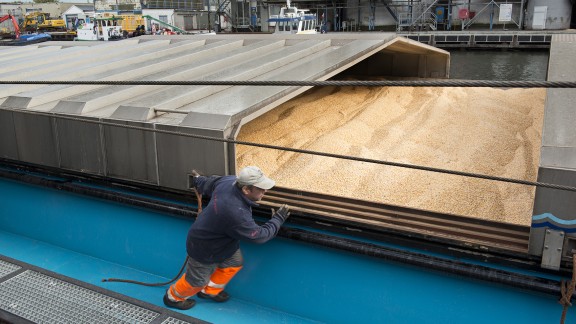
Cargo waste
Cargo waste may be produced during the transhipment and transport of dry and liquid cargo. The recipient or sender of the cargo is responsible for the costs of cleaning the holds and gangways after unloading. The terminal indicates the collector or port reception facility where the waste can be deposited.
You as a skipper are responsible for the cleaning method and the amount of waste deposited. You must be able to demonstrate this by means of an unloading certificate if requested by a supervisor of the harbour master.
Waste oils and greases and other ship waste
Waste from the engine room (such as bilge water, waste oil and grease, filters and used cleaning rags) and other waste (such as waste water, slops from holds and tanks and non-oily types of waste) must be handed over to a waste collector who has an agreement with the SAB Maritieme Service.
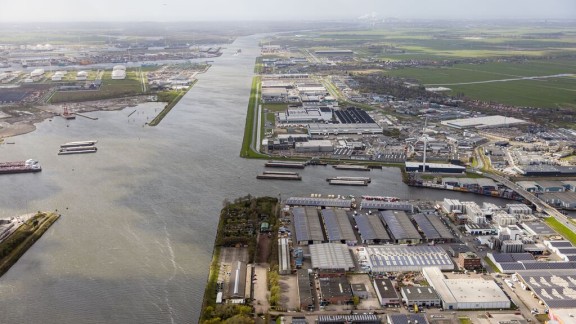

Drinking water
There are two drinking water taps at the Haparandadam and one at Afrikahaven. You tap water at this tap point via Ease2Pay, which is the same payment platform used for shore power.
Tapping water at one of the Port of Amsterdam taps is free up to 6m³ per day. Do you want more water in one day? Then you pay € 2.50 per cubic meter. The discount is corrected afterwards when invoicing.
Eco card
Oil and grease containing ship's waste can be delivered to the SAB reception facilities, provided that the waste originates from normal operations. To be able to deliver ship's waste, you must be able to show the oil discharge booklet and the international eco card.
Don't have an eco-card yet? You can easily apply for it through the SAB website. As of August 9, 2023, the physical card will be replaced by an app, more information on this can be found on the SAB website.
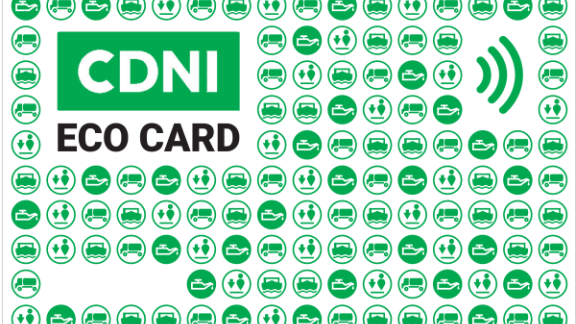
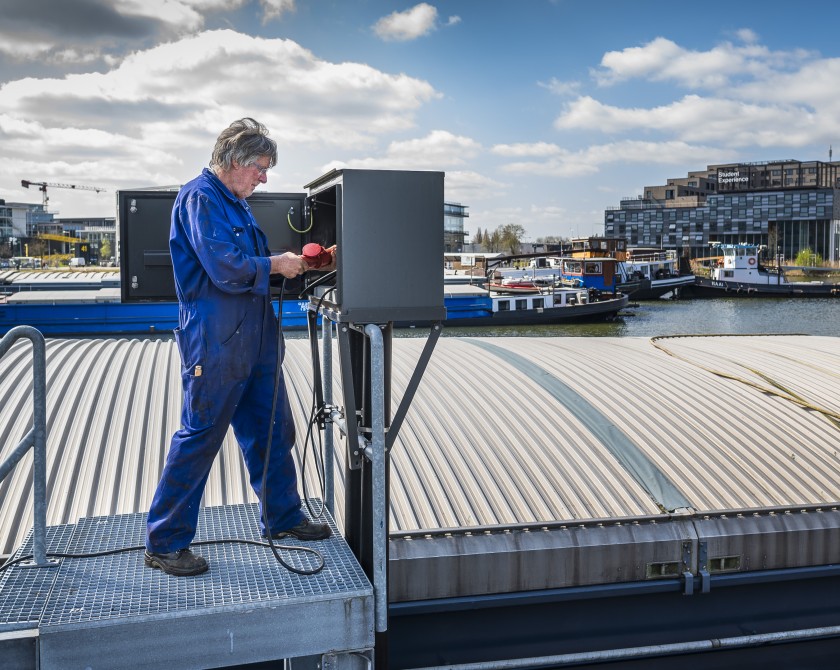
Shore power connection
Port of Amsterdam has provided shore power connections at various berths for inland navigation and passenger vessels. This is good for the environment and the use of ship-to-shore power also prevents noise pollution.
Walstroom.eu
The shore power cabinets use the provider Walstroom.eu. This means that registration and use is slightly different from the old shore power cabinets that were replaced in 2022. Read here the steps you need to take to use the shore power cabinets with Walstroom.eu.
Use of spud poles
If you want to use spud poles in the North Sea Canal area, certain regulations occur. These regulations depend on the location of the spud poles.
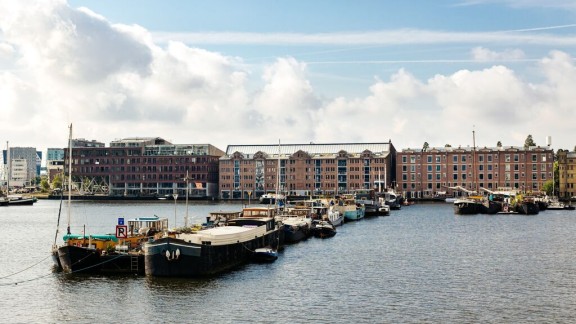

Generator ban
To prevent noise and odour nuisance, areas have been designated in the Amsterdam port areas where it is not permitted to run a generator.
WiFi
There are two WiFi hotspots in the port of Amsterdam:
- in the Houthavens
- at the ADM port
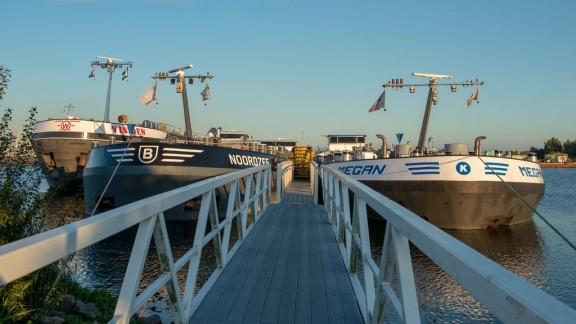
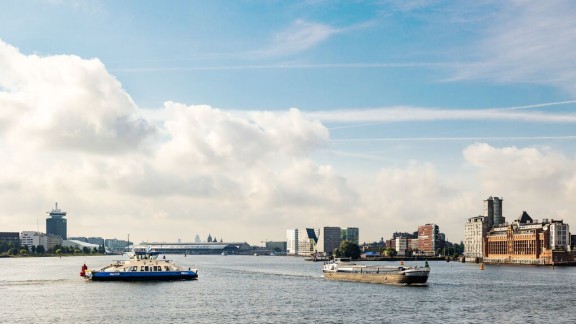
Medical services
There are various care institutions in the Amsterdam region that specialise in working with international shipping. You can contact them for first aid, medical examinations and mental health care.
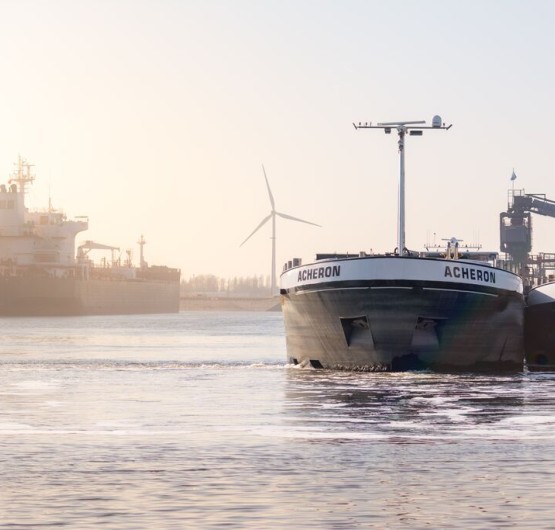
Degassing
Degassing, ventilation and free ventilation by inland tankers: situation as of 1 July 2024 in the North Sea Canal area.
The CDNI Convention came into force as of 01 July 2024 through the Shipping Waste Decree; in addition, there are other regulations that remain in force on the matter of cargo fumes from inland tanker shipping. For the sake of clarity, the definitions in a row that are used from 1 July:
- Degassing: the removal of vapours from a stripped cargo tank to a degassing facility by using appropriate procedures and techniques for this purpose;
- Ventilation: the direct release of cargo vapours from the cargo tank to the atmosphere;
- Vent Free Level (AVFL= Accepted Vent Free Level): ventilation of a cargo tank at a vapour concentration of less than 10% of the Lower Explosive Limit (LEL), where the release of the vapours to the atmosphere is permitted.
Ventilation when moored
Permission for ventilation when moored and permission for ventilation below the AVFL requires approval from the Harbour Master. The Harbour Master will designate a suitable berth if available.
Permission may be optained via:
- the Harbour Master's Division, Portoffice on 020-5234600 option 2.
- the VHF radio, on channel 14.
1. Conditions permission for ventilation when moored
Inland tankers wishing to ventilate the following substances will not be granted permission and will have to find an alternative to degassing at a (mobile) degassing unit at a public quay authorised for this purpose or at an oil terminal authorised for degassing:
- UN 1203 petrol;
- UN1114 benzene;
- UN1267, crude oil with more than 10% benzene;
- UN1268, petroleum distillates;
- UN1863, paraffin with more than 10% benzene;
- UN1993, flammable liquids with more than 10% benzene;
- UN3295, hydrocarbons, liquid, N.O.S., containing more than 10% benzene (stage 2);
- UN3475, ethanol and gasoline, blended with more than 10% ethanol (phase 1);
- Liquid (odorous) substances, as listed in Annex 2 of the RHN 2023 (North Sea Canal Regional Port Regulation 2023)
Applications for ventilation of other ADN substances as mentioned above will be considered, until phase III of the CDNI is implemented (3 to 4 years after 2024), under the following conditions:
Ventilation may only be carried out by inland tankers that have to reload cargo in Amsterdam.
2. Conditions for the permission of ventilation below the AVFL (below 10% LEL)
Applications for this ventilation below the AVFL all ADN substances, except those referred to in Annex 2 of the RHN 2023, will be considered.
- In the event of an odour code I coming into force/suspended by the Province of North Holland, permission will be withdrawn/suspended.
Permission may be optained via:
- the Harbour Master Division, Portoffice on 020-5234600 option 2.
- the VHF radio, on channel 14.
Ventilation when sailing
At locks, including their associated berths, near bridges or in densely populated areas, all kinds of ventilation are not allowed.
For the Amsterdam-North Sea Canal area, the situation for this has been mapped by the ministry, indicated by red shading. For the other parts of the North Sea Canal, as indicated on the map in orange, the following applies:
Ventilation when sailing of the following substances is not permitted:
- UN 203 petrol;
- UN1114 benzene;
- UN1267, crude oil with more than 10% benzene;
- UN1268, petroleum distillates;
- UN1863, paraffin with more than 10% benzene;
- UN1993, flammable liquids with more than 10% benzene;
- UN3295, hydrocarbons, liquid, N.O.S., containing more than 10% benzene (stage 2);
- UN3475, ethanol and gasoline, blended with more than 10% ethanol (phase 1);
- Liquid (odorous) substances, as listed in Annex 2 of the RHN 2023 (North Sea Canal Regional Port Regulation 2023)
Ventilation below AVFL of these substances is allowed, with the exception of:
The odorous substances, as listed in Annex 2 of the RHN 2023 (North Sea Canal Regional Port Regulation 2023).
Ventialtion and ventilation below AVFL when sailing in these areas of other ADN substances as listed above is permitted until phase III of the CDNI is introduced (3 to 4 years after 2024). For all permissions, the regulations and instructions of the ADN must of course be observed by the skippers of inland tankers.